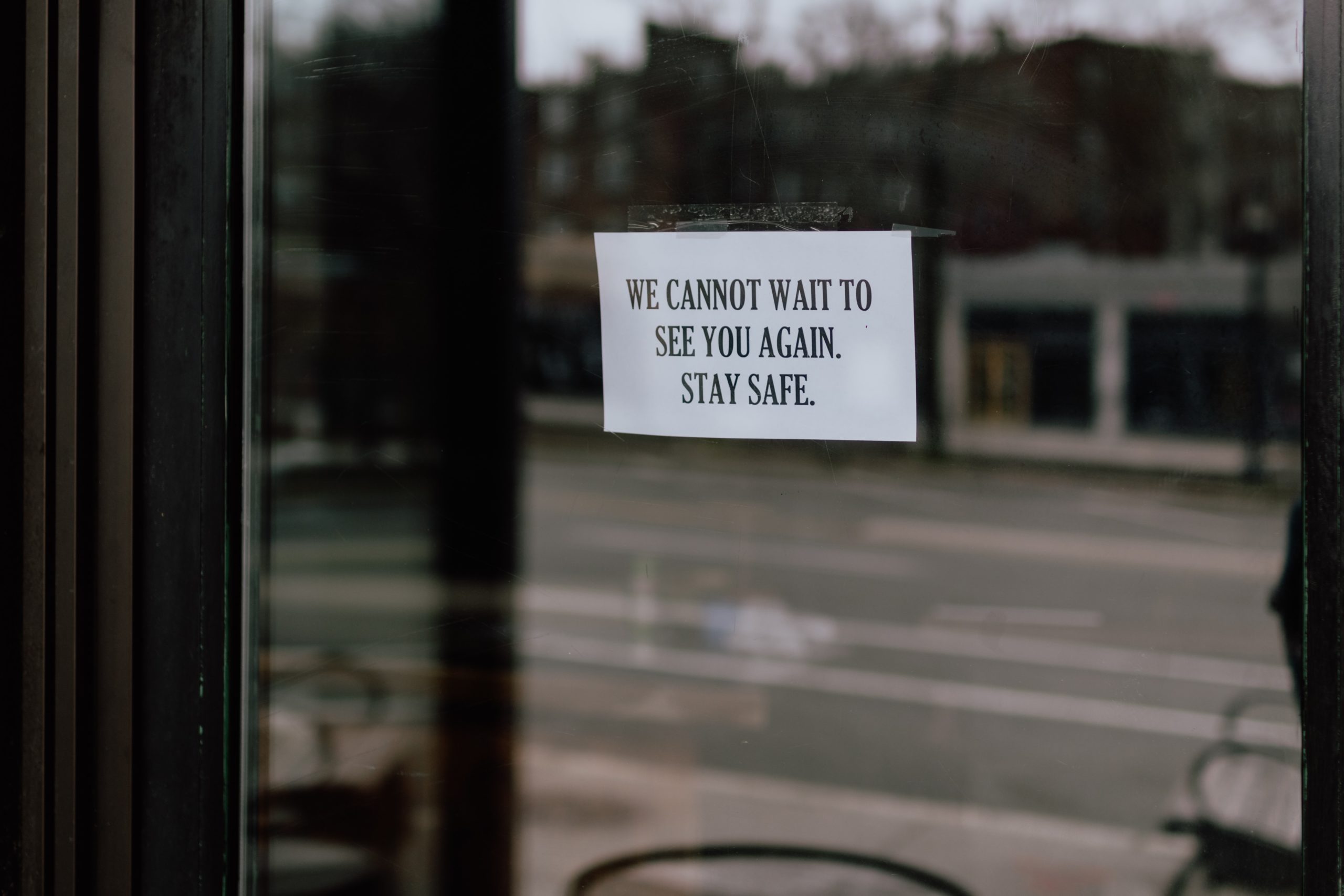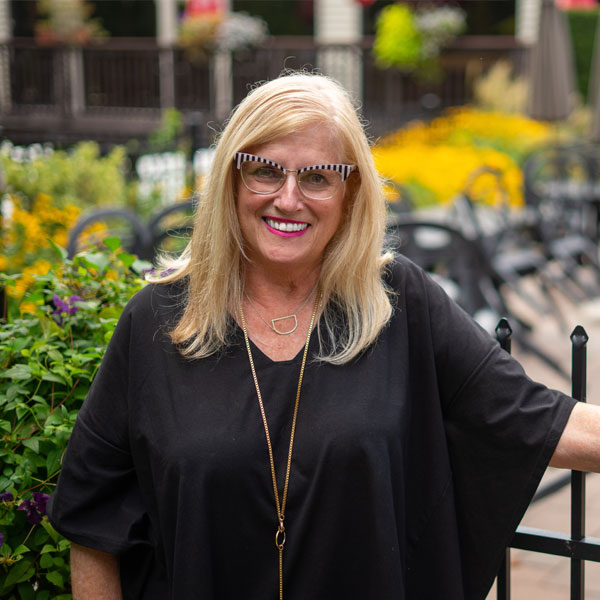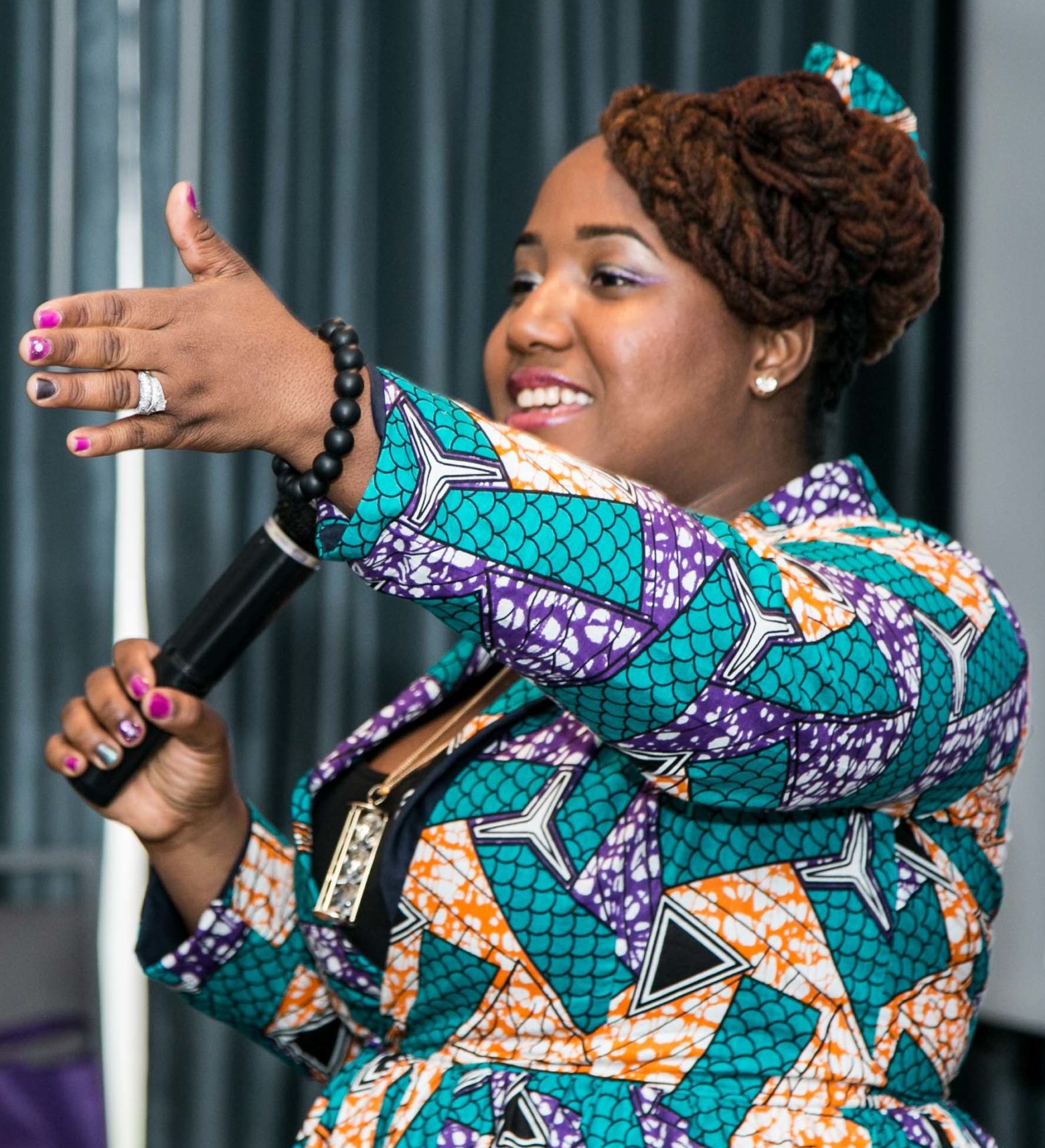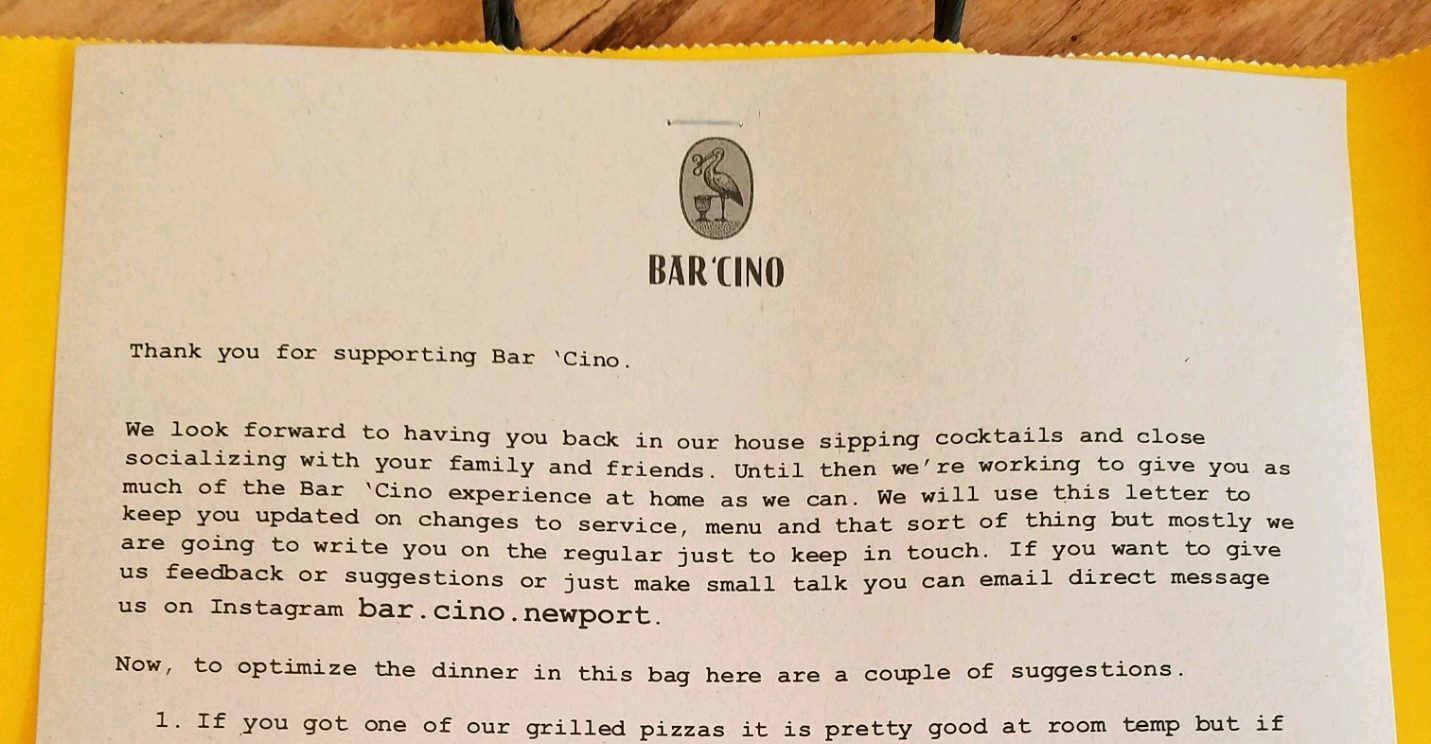By Ashley Rappa, ‘19 | 5/4/20
A Key Ingredient: Restoring Trust in a Time of Upheaval

Rhode Islanders have a long history of trusting their gut when it comes to restaurants. Touted as a top culinary destination nationwide, from deli counters to clam shacks to high-end cuisine, the Ocean State culture centers around food. We break bread in celebration, console ourselves with expertly executed comfort food, and connect with neighbors, strangers and friends over slabs of polished mahogany and the electric clink of a cocktail glass.
On March 18, with the swift flick of a pen, all of that disappeared.

After the signing of an executive order on March 18th, more than 3,000 restaurants in Rhode Island were forced to shutter their doors to dine-in service.
A part of the sweeping societal pullback in reaction to the COVID-19 pandemic, on that mid-March morning, an executive order was put in place to close all dine-in service in the state. The next day all of the almost 3,000 restaurants in Rhode Island were forced to shutter their doors, an unprecedented disruption for the lives and livelihoods of those working in hospitality.
For years, the food industry has been a local economic juggernaut. In 2019, the industry accounted for $2.7 billion in revenue, and 57,600 Rhode Islanders were employed in a food service role, roughly 11 percent of the state’s total workforce. Now, as tables sit empty and ovens stay cold, almost all of those people are unemployed. But as the death toll from COVID-19 surpasses 300 souls within our borders, at least they are safe.
The Leadership Rhode Island alumni network is home to many of the chefs, owners, and staff in the service industry. Once responsible for creating environments that beckoned people into their doors with the promise of impeccable service and the perfect bolognese, they are currently tasked with trying to save a beloved trade in the midst of unrivaled despair.

Dale Venturini ‘88, president and CEO of the Rhode Island Hospitality Association and the Rhode Island Hospitality Education Foundation
“I’ve been in this business for 31 years, and nothing can compare to the situation we now find ourselves in. Everyday is heart-wrenchingly difficult,” says Dale Venturini ‘88, president and CEO of the Rhode Island Hospitality Association and the Rhode Island Hospitality Education Foundation. “Things are moving so quickly, yet progress feels unbearably slow. The world is changing so much, but we’re faced with more questions than we have answers at every turn. Our industry is based on trust, but it’s so hard to trust anything because everything from how we work to how we eat to how we live is being called into question right now.”
Before COVID-19, trust was an implicit part of any restaurant exchange — trust in the quality of the food, the cleanliness of the establishment, the skill and safety of the people providing the service. Listed as one of Gallup’s four key components to successful strength-based leadership, alongside hope, compassion and stability, trust has long been a factor in keeping a restaurant’s dining room full. Now, amidst the pandemic, it is a key ingredient when considering how to cope with this tragedy and eventually reopen restaurants’ doors along with the rest of the economy.
For Paul O’Reilly ‘95, president and CEO of the Newport Restaurant Group, trust has always been a part of his business plan. As a 100% employee-owned organization, the $95-million hospitality company behind Rhode Island gems like Castle Hill, Waterman Grille and Bowen’s Wharf, attributes its success to trusting the professionalism and passion of the staff’s collective leadership. Which is exactly why the decision to layoff almost their entire workforce in March was so traumatic.

Paul O’Reilly ‘95, president and CEO of the Newport Restaurant Group
“This virus put an entire industry into a sudden state of shock. If you’re a restaurant during COVID-19, it feels like you had your right leg ripped clean off, and now we’re desperately trying to staunch the bleeding and figure out how and when we can get back to the business we all love,” says O’Reilly, whose great grandfather started the company in 1925. “I’m having to dig really deep to find my own personal source of hope to know that there is, somewhere out there, a greater wisdom to all of this. I know many people who have come out of hardship only to say that they are better for it. I am still trusting that some way, somehow, we as employee owners will be able to collectively say that together sometime in the future.”
COVID-19 has often been compared to a war in which we are all fighting an invisible enemy. For retired Navy Commander Mike Riordan ‘18, whose decorated service includes a tour in Kosovo, three years as Congressional Advisor to Admiral James Stavridis, and most recently six years as a professor at Newport’s Naval War College, trust is critical to triumphing over chaos. The restaurant industry, once the epitome of organized chaos — a perfect ballet of plates balanced on forearms, ice ricocheting in shakers, and tables touched in sequence — has been forced to devolve into an embattled landscape. But there is a way out.
“Rebuilding trust is a gradual exercise. First, you put your trust in your core group. You lean on them, and you protect them. Through the resiliency of those bonds, you’re able to work through those initial challenges. If those connections are strong enough, you’re able to extend that trust to ever-broadening circles to weather whatever setbacks you encounter because you are stronger together,” says Riordan.
As restaurants look toward recovery, Venturini and her colleagues at the Rhode Island Hospitality Association, are looking to actively expand restaurant-goers’ circles of trust to include their favorite hubs and haunts. With a limited re-opening potentially looming in the near future, pending Governor Raimondo’s go ahead, planning has begun in the form of a promise.
“We are making a pledge — we are committed to welcoming you back as soon as we can and as safely as we can. Our top priorities are the protection of our guests. We know that our guests’ comfort and health are as important as great food,” says Venturini.
Across the state, restaurateurs are looking for innovative ways to foster trust both with their customers and within their companies, while still being able to create the food and experience that sets them apart:
- “You don’t earn trust by telling people how well you are going to do. You earn it by doing the hard stuff . . .” and satisfied customers will spread the word. Along with the revised seating, sanitizing and all the rest, Sanjiv Dhar, owner of Kabob and Curry in Providence, Rasoi in Pawtucket, Rasa in East Greenwich and Chaska, new to Cranston’s Garden City Center, all specializing in Indian food, says he will add fact sheets on each restaurant website explaining the steps being taken to keep employees and guests safe.

Sterling Clinton-Spellman ‘19, founder and owner of The Incred-A-Bowl Food Company
- Sterling Clinton-Spellman ‘19, founder and owner of The Incred-A-Bowl Food Company with her husband Russell, focuses their mobile business on providing “bowls packed with a nutritious mix of greens, beans, and proteins that do not skimp on the taste.” To ensure their customers know they are still considering health at top of mind, they have concocted an interesting plan to build trust: creating a mini-series of videos showcasing their procedures to reassure customers that they are exercising safe practices.
- Kazu Kondo, co-owner of Providence restaurants Wara Wara and Tori Tomo, with X Premwat and Nick Mazonowicz, says they work to earn the trust of every customer by preparing quality food and by providing excellent service 365 days a year. To keep that trust when dine-in service is allowed once again, the restaurants will follow all new guidelines from the state and will pay close attention to the needs of customers to ensure they are comfortable.
- Brian Oakley, General Manager/Partner, Julian’s Restaurant & Catering and Pizza J in Providence, says that trust has been at the top of discussions with our staff and with our customers as of late. He’s exploring technological improvements, transitioning away from the traditional table side model of ordering, hands-free doors that open with the press of a foot, and other options to plot the most ethical and responsible course. “Dining as we knew it is over. We must find the new and best way (for everything),” he said.
- Jennifer Luxmoore ’10, owner of Sin, coffee shop, dessert bar and custom cake shop in Providence, says she plans to do just what she’s always done to earn trust. “I’m doing what’s right, what’s to be expected . . . .” They are already following all the rules, from constant hand washing to sanitizing everything, even the pens after every use. Trust comes, she says, by moving quickly to fix a concern or complaint in a way that exceeds customer expectations.
- Kevin Kazarian ’16, Director of Food and Beverage at Spumoni’s of Pawtucket says the Italian restaurant will adhere to all new rules regarding safe service, and is counting on the trust built over the years to continue when dining-in resumes. “We have always believed that the most important part of our job is to craft personalized and memorable dining experiences that cultivate meaningful relationships with guests. We are fortunate that we have longevity with our staff members who, over the years, have developed long-lasting relationships with our guests. These relationships help strengthen that trust and reassures them that we will do everything we can to ensure a safe dining experience.”
From the moment this pandemic descended upon Rhode Island, restaurants have showcased their hallmark creativity, trading de-crumbed white linen or family style plates for curbside pickup, all without missing a beat.

One of the notes that Bar ‘Cino manager Shawn Westhoven includes with each takeout order.
At the Newport Restaurant Group, some of the measures O’Reilly’s remaining staff are taking attempt to translate the two-way exchange of the table side experience into the takeout realm. At Bar’cino in Newport, manager Shawn Westhoven staples notes to the to-go orders that feature wine pairings, reheating instructions and heartfelt messages of encouragement. While well received by guests and a prime example of the restaurant’s spirit, O’Reilly noted that even the loveliest gestures couldn’t replace an entire culture.
“You can only do so much in this new age when you can’t see someone smile. We will do our best, and that’s exactly what we have always done and need to do today. But just when people need it most, we are being denied the rejuvenating human energy of the restaurant experience,” says O’Reilly. “Of course it’s the food we miss, but it’s also the server you laugh with, the love of being surrounded by other people, the ability to sit and relax… you get this permission to be in a certain state of mind. I think we could all use that right now, and I trust we will get back to it someday soon.”
—
Leadership, Virtually: Working alongside the talented and exceptionally versatile Leadership Rhode Island team on this initiative is an alumnae team with expertise in journalism, communication, digital technology, and nonprofit excellence. They are charged with chronicling this time of bringing people together virtually to make connections and offer critical support.
Luann Edwards, LRI ’19, is founder of Socially Professional, a social media marketing consultancy. You’ll find her at the intersection of communication and technology, where some of the most meaningful connections are happening. As a strategist, she meets a challenge with a plan and tenacity. She’s grateful to be a small part of the leadership that our state, and Leadership Rhode Island, is bringing to this unprecedented time.
Strategic | Learner | Context | Connectedness | Input
Jane Nugent, Ed.D. LRI ‘95, nonprofit professional in RI since 1982, believes in the power of nonprofit organizations to be the key problem solvers for society. She has witnessed the power of Rhode Island community based groups provide the greatest good for the greatest number over a long period of time. She has worked with many groups in the state and knows that this time will be no different than difficult times past — they will rise to the occasion and lead the way.
Learner | Analytical | Individualization | Relator | Achiever
Ashley Rappa, LRI’19, founder of Human Writes Consulting and Director of Marketing & Communication at Lincoln School, is a writer at heart and a Rhode Islander by choice. At her best, she believes in the power of words to elevate our lives, and the deep beauty of human connection. At her worst, she still believes that, but likely needs more coffee.
Input | WOO | Communication | Empathy | Positivity
Carol Young, LRI ’92, After 45 fabulous years at the Providence Journal, she bid adieu to the Fourth Estate. Ten years later, she still has printer’s ink in her blood and welcomes opportunities to work with writers while keeping her editing skills sharp.
Harmony | Achiever | Learner | Communication | Significance